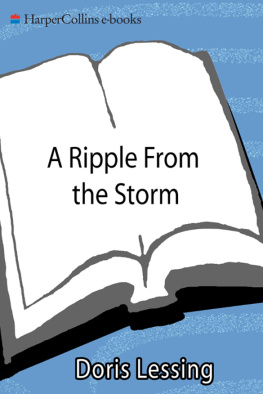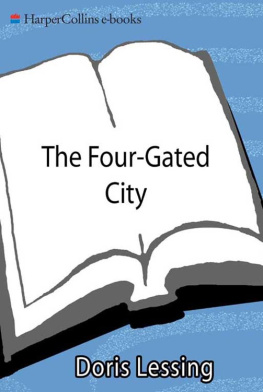Shikasta is the first of a series of novels with the overall title Canopus in Argos: Archives. The second will be The Marriages Between Zones Three, Four, and Five. The third will be The Sirian Experiments.
SOME REMARKS
Shikasta was started in the belief that it would be a single self-contained book, and that when it was finished I would be done with the subject. But as I wrote I was invaded with ideas for other books, other stories, and the exhilaration that comes from being set free into a larger scope, with more capacious possibilities and themes. It was clear I had made - or found - a new world for myself, a realm where the petty fates of planets, let alone individuals, are only aspects of cosmic evolution expressed in the rivalries and interactions of great galactic Empires: Canopus, Sirius, and their enemy, the Empire Puttiora, with its criminal planet Shammat. I feel as if I have been set free both to be as experimental as I like, and as traditional: the next volume in this series, The Marriages Between Zones Three, Four, and Five, has turned out to be a fable, or myth. Also, oddly enough, to be more realistic.
It is by now commonplace to say that novelists everywhere are breaking the bonds of the realistic novel because what we all see around us becomes daily wilder, more fantastic, incredible. Once, and not so long ago, novelists might have been accused of exaggerating, or dealing overmuch in coincidence or the improbable: now novelists themselves can be heard complaining that fact can be counted on to match our wildest inventions.
As an example, in The Memoirs of a Survivor I "invented" an animal that was half-cat and half-dog, and then read that scientists were experimenting on this hybrid.
Yes, I do believe that it is possible, and not only for novelists, to "plug in" to an overmind, or Ur-mind, or unconscious, or what you will, and that this accounts for a great many improbabilities and "coincidences."
The old "realistic" novel is being changed, too, because of influences from that genre loosely described as space fiction. Some people regret this. I was in the States, giving a talk, and the professor who was acting as chairwoman, and whose only fault was that perhaps she had fed too long on the pieties of academia, interrupted me with: "If I had you in my class you'd never get away with that!" (Of course it is not everyone who finds this funny.) I had been saying that space fiction, with science fiction, makes up the most original branch of literature now; it is inventive and witty; it has already enlivened all kinds of writing; and that literary academics and pundits are much to blame for patronising or ignoring it - while of course by their nature they can be expected to do no other. This view shows signs of becoming the stuff of orthodoxy.
I do think there is something very wrong with an attitude that puts a "serious" novel on one shelf and, let's say, First and Last Men on another.
What a phenomenon it has been - science fiction, space fiction - exploding out of nowhere, unexpectedly of course, as always happens when the human mind is being forced to expand: this time starwards, galaxy-wise, and who knows where next. These dazzlers have mapped our world, or worlds, for us, have told us what is going on and in ways no one else has done, have described our nasty present long ago, when it was still the future and the official scientific spokesmen were saying that all manner of things now happening were impossible - who have played the indispensible and (at least at the start) thankless role of the despised illegitimate son who can afford to tell truths the respectable siblings either do not dare, or, more likely, do not notice because of their respectability. They have also explored the sacred literatures of the world in the same bold way they take scientific and social possibilities to their logical conclusions so that we may examine them. How very much we do all owe them!
Shikasta has as its starting point, like many others of the genre, the Old Testament. It is our habit to dismiss the Old Testament altogether because Jehovah, or Jahve, does not think or behave like a social worker. H. G. Wells said that when man cries out his little "gimme, gimme, gimme" to God, it is as if a leveret were to snuggle up to a lion on a dark night. Or something to that effect.
The sacred literatures of all races and nations have many things in common. Almost as if they can be regarded as the products of a single mind. It is possible we make a mistake when we dismiss them as quaint fossils from a dead past.
Leaving aside the Popol Vuh, or the religious traditions of the Dogon, or the story of Gilgamesh, or any others of the now plentifully and easily available records (I sometimes wonder if the young realise how extraordinary a time this is, and one that may not last, when any book one may think of is there to be bought on a near shelf) and sticking to our local tradition and heritage, it is an exercise not without interest to read the Old Testament - which of course includes the Torah of the Jews - and the Apocrypha, together with any other works of the kind you may come on which have at various times and places been cursed or banished or pronounced non-books; and after that the New Testament, and then the Koran. There are even those who have come to believe that there has never been more than one Book in the Middle East.
Doris Lessing
7 November 1978
CANOPUS IN ARGOS:ARCHIVES. RE: COLONISED PLANET 5. SHIKASTA
Johor has been chosen as suitable to represent our emissaries to Shikasta - of whom there were many, carrying out a multiplicity of functions - in this compilation of documents selected to offer a very general picture of Shikasta for the use of first-year students of Canopean Colonial Rule.
JOHOR reports:
I have been sent on errands to our Colonies on many planets. Crises of all kinds are familiar to me. I have been involved in emergencies that threaten species, or carefully planned local programmes. I have known more than once what it is to accept the failure, final and irreversible, of an effort or experiment to do with creatures who have within themselves the potential of development dreamed of, planned for... and then - Finis! The end! The drum pattering out into silence...
But the ability to cut losses demands a different type of determination from the stubborn patience needed to withstand attrition, the leaking away of substance through centuries, then millennia - and with such a lowly glimmering of light at the end of it all.
Dismay has its degrees and qualities. I suggest that not all are without uses. The set of mind of a servant should be recorded.
I am a small member of the Workforce, and as such do as I must. That is not to say I do not have the right, as we all have, to say, Enough! Invisible, unwritten, uncoded rules forbid. What these rules amount to, I would say, is Love. Or so I feel, and many others, too. There are those in our Colonial Service who, we all know, hold a different view. One of my aims in setting down thoughts that perhaps fall outside the scope of the strictly necessary is to justify what is still, after all, the majority view on Canopus about Shikasta. Which is that it is worth so much of our time and trouble.
In these notes I shall be trying to make things clear. There will be others, after me, and they will study this record as I have studied, so often, the records of those who came before. It is not always possible to know, when you make a note of an event, or a state of mind, how this may strike someone perhaps ten thousand years later.














